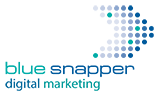PPC (Pay-Per-Click), or paid search, is a powerful and flexible digital channel that gives you complete control over your search marketing.
In the hands of a PPC expert, campaigns can be rapidly deployed to get your adverts in front of your target audience with laser-precision.
With PPC advertising, you choose to whom you wish to show your ads, where to show them, and when. You decide where to direct the clicks on your adverts in the search results.
You can also control how much you want to spend for each click, or the cost for each action they take on your website, such as a sign-up or a sale, and you get to set the budget you want to spend over a given period. If you’re a charity, you may even qualify for a Google Ad Grant.
And PPC is the only guaranteed way to get to the top of the search results on Google and Bing. But that’s only part of the story. With PPC, there’s so much that can be done to grow your sales and reduce campaign costs so your Return On Ad Spend (ROAS) can be maximised.
With our 23-years experience delivering successful campaigns, we know our PPC approach can consistently deliver triple-digit returns. It’s a process that relies on our methodical research, continual campaign refinement, and our desire to achieve the best results for our clients.
Contact us to see how our PPC services can help you maximise your leads and sales from search marketing.
What could PPC do for you?
Find out today. Message, chat or call on +44 (0)1865 242089.
We’d love to hear from you.
What our clients think
we can Find Your next customer
With 20-years experience managing PPC campaigns, we know a thing or two about paid search
Search CAMPAIGNS
Get your ads on Google and Bing while people search for your products or services.
Shopping campaigns
The perfect channel for online retailers. Promote your products on Google and Bing.
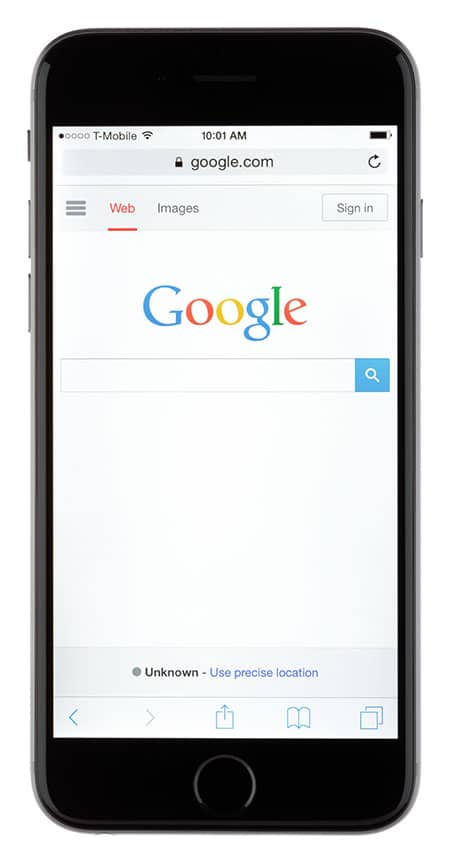
Display CAMPAIGNS
Reach prospects on other websites, watching YouTube videos or reading their Gmail.
video CAMPAIGNS
Connect with your audience on YouTube and across the web with your best video content.
Some Of Our Clients
Here are a few examples of businesses that we've helped grow with our PPC management services
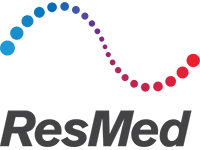
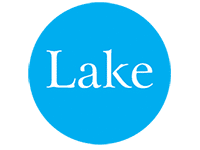

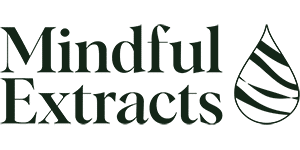
Our 6-Steps to PPC Success
In-depth research, expertise, and our desire to achieve the best results for our clients.

01
PPC Strategy
We’ll help you navigate the wide range of PPC opportunities that are available to you and recommend which ones are the best fit for your business and the audiences you want to reach.
02
PPC Discovery
With PPC discovery, we’ll build a complete picture of the best search queries and competitive landscape relevant to your business.
The results of the discovery phase shape our PPC campaigns so we can target the searchers who are more likely to become your next customers and identify the budget you’ll need to reach them.


03
PPC Architecture
We are experts at structuring PPC campaigns – whether search shopping, display or video – and will optimise their performance to achieve the best possible reach, engagement and return for your budget.
04
Landing Page Optimisation
Optimising your destination landing-pages is a crucial part of maximising your return on ad spend from PPC.
We can identify and implement simple landing-page changes to uplift visitor engagement and sales from PPC through to more comprehensive A/B or multivariate testing. With our Conversion Rate Optimisation (CRO) expertise, we will find and prove which landing-page combinations deliver the optimum results.


05
PPC Campaign Management
PPC is dynamic real-time auction that is in constant flux: search behaviour changes; PPC competition waxes and wanes; costs fluctuate; Ad platforms introduce new ways to reach audiences or to target them more effectively.
With frequent manual reviews, ongoing education plus a little help from automation, we keep a watchful eye on your campaigns. We’ll ensure they continue to perform at their best whatever changes may occur.
06
Analysis & Reporting
The PPC reporting we offer is tailored to the needs and background of the individual members of your digital marketing team.
We can report on the detail of the inner workings of the campaigns – all the way down to the search query data. And we can provide just the most important insights to senior management: how much it cost to get those new leads or the Return On Ad Spend (ROAS) of your online sales.
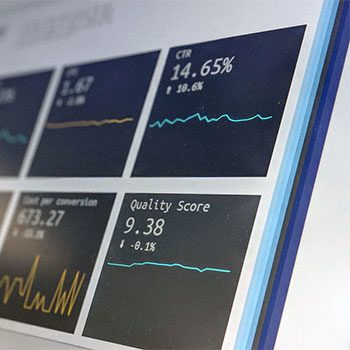
PPC FAQ
Most frequently asked questions and answers about PPC.
PPC is an abbreviation for Pay-Per-Click (also known a CPC or Cost-Per-Click). It’s a digital advertising model where a cost is incurred each time a user clicks on an advert (text, image, video or link).
Examples of advertising platforms that offer PPC are Google Ads, Microsoft Advertising (formerly Bing Ads), Facebook for Business and LinkedIn Ads. However, these platforms do offer bidding models other than PPC.
For these platforms, the actual cost paid by an advertiser is dynamic and determined by a real-time auction. The auction is where advertisers automatically bid on specific keywords and/or audiences in an attempt to get their adverts to appear to the target audience.
Advertisers can control their costs by limiting the amount they are prepared to pay for each auction as well as setting maximum daily or periodic budgets
Paid search is a generic term for any advert that appears in a search engines’ results pages that is paid for by an advertiser. Examples of paid search are Google Ads and Microsoft Advertising (formerly known as Bing Ads).
Google Shopping is an extension of Google Ads for online retailers. It displays product images, product descriptions and pricing in response to relevant search queries.
Google Shopping requires a valid product feed to be regularly submitted to another Google platform – Google Merchant Centre. This feed must include important product information such as part numbers, titles, descriptions, prices, availability etc. The Merchant Centre product feed is then linked to the Google Shopping campaigns that have been created within Google Ads.
Unlike other types of paid-search campaigns, where the advertiser decides which search keywords to bid for, it is Google that determines in which relevant keyword auctions your products will be eligible to enter (though advertisers do have some control over this).
Google Ad Grants is a Google initiative that is only available to nonprofits including charities. Its aim is to help these organisations take advantage of advertising on Google Search without having to pay for those adverts. Up to £7.5k is available each month for qualifying organisations.
There is much to consider to improve your PPC campaigns. Here are a few things you should bear in mind:
- Keyword targeting. You should be bidding on keywords that are relevant to your audience and the landing pages where you send them. Improving relevance will also improve your quality score which is a key factor in determining your campaign performance and the cost-per-click (see also advert content).
- Excluding Searches. You should be adding negative (stop) keywords to the account, campaigns and ad groups to prevent your ads from triggering for irrelevant or unwanted search queries.
- Advert content. Ad content must be compelling and relevent to your audience and the keywords that will trigger them (this relevance also contributes to the quality-score metric). Several adverts for each ad group should always be on split rotation and optimised for the ads that deliver the best Click-Through-Rate (CTR).
- Landing Pages. Optimising your landing pages for PPC will help improve conversions (leads and/or sales) which is usually a primary objective of a PPC campaign. The relevance of the landing-page content and its load time also contribute towards PPC quality score.
- Quality Score. This is a measure of the quality of your PPC campaigns. For Google, the quality score is a metric with a value of 1 to 10 (10 being the best score) and is estimated by Google based on your CTR (Click-Through-Rate), Ad relevance and landing-page experience. The higher your quality score, the more likely your ads will rank well for a given Cost-Per-Click (CPC).
Unfortunately, a definitive answer can’t be given to this question! Google Ads certainly has a far greater reach than Bing Ads (now renamed Microsoft Advertising) but, in our experience, the quality of the visitors delivered by a Microsoft Advertising campaign can be very good and the Cost Per Click (CPC) lower than Google Ads.
As with all digital marketing campaigns, the best approach is to test, optimise and keep or reject depending on the results.
Return On Ad Spend (ROAS) is a key performance metric, particularly for PPC campaigns for ecommerce websites. It’s a percentage that represents revenue achieved for a given spend at the campaign, ad group or keyword level.
Google’s ROAS calculation is (revenue / cost) x 100. For example, if £100 is spent on a Google Ads campaign and sales attributed to that campaign is £1,000, then the campaign ROAS is: (1000 / 100) x 100 = 1,000%. Or, to put that another way, for every £1 spent, you’re getting £10 back in sales from PPC.
Negative keywords, or stop keywords, are ones that you add to your PPC campaigns when you don’t want your ads to show for that keyword or keyword phrase. They are just as important for you to research and include in your campaigns as are the keywords you want to target.
Consider a simple example: you only sell red widgets so you may not want to show your ads for search queries that contain any colour other than red. Therefore, you would include the most common colours as negative keywords. Another obvious negative keyword to consider might be ‘free’ as you don’t want to give your red widgets away; that would stop your ads from showing for a search for ‘free red widgets’
It’s essential to use negative keywords in instances where the ad platform may choose variants of the keyword you’re targeting. This can happen with broad-match and phrase-match keywords in a search campaign. Negative keywords are also essential for Shopping Campaigns to control when your products ads are displayed. As an advanced technique, you can also use negative keywords to ensure one of your ads is served in preference to another.
One-Stop Digital Marketing
Whether you want to outsource your digital marketing , or just need support for your next campaign, we’ve got you covered!


Digital Marketing Consulting
The power behind our campaigns: in-depth knowledge plus 22-years of digital marketing experience.

Klaviyo Consulting
As a Klaviyo Partner, we’ve helped many online businesses grow their sales with Klaviyo marketing automation.

SEO
Want more sales or leads from people searching on Google? We'll find them and make sure they connect with you!

PPC (Paid Search)
Fast and laser-targeted. In our hands, Google Ads, Google Shopping and Microsoft Ads deliver impressive returns.

Content Marketing
Our content will resonate with your audience, develop your brand and boost SEO to deliver prospects and sales.

Email Marketing
Personalised and punchy! We'll deliver your news and offers to your audience - and get them noticed!
Contact
Blue Snapper Digital Marketing
The Bunker
29 Wytham Street
Oxford OX1 4TR
Oxfordshire, UK
